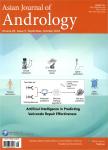Exploration of functional health, mental well-being and cross-sex hormone use in a sample of Thai male-to-female transgendered persons (kathoeys)
在泰国男性变女性变性人(泰国人妖)中探索其功能性健康、心理健康及跨性别激素的使用作者机构:VU university medical center Amsterdam 1081 HV The Netherlands Androconsult Chiang Mai 50220 Thailand Department of Psychiatry Leiden University Medical Center Leiden 5000 AB The Netherlands
出 版 物:《Asian Journal of Andrology》 (亚洲男性学杂志(英文版))
年 卷 期:2013年第15卷第2期
页 面:280-285,I0009,I0010页
核心收录:
学科分类:10[医学]
基 金:Stichting Reproductieve Geneeskunde Amsterdam The Netherlands
主 题:cross-sex hormones functional health kathoeys optimism transgender well-being
摘 要:Transgender people sometimes use cross-sex hormones without medical supervision. The use of cross-sex hormones, as well as the functional health and mental well-being, among male-to-female transgendered people ('kathoeys') in Chiang Mai, Thailand, was studied. Sixty kathoeys were interviewed regarding their use of cross-sex hormones and their familyrelationships. Individuals also completed the Life Orientation Test Revised (LOT-R) to assess dispositional optimism, the Social Functioning Questionnaire (SFQ) and the Short Form Health Survey 36 (SF-36). Three categories were established as follows: those who never cross-dress, those who sometimes cross-dress and those who always cross-dress in public. Of the 60 subjects, 44 had used hormones for prolonged periods (9.7+6.1 years). Their use was related to the permanence of cross-dressing but unrelated to functional health and mental well-being. Fifty percent of subjects had overdosed on commonly used oral contraceptives. Three people used injectable oestrogen in a higher-than-recommended dose. Self-acceptance was high or reasonably good (83%) compared to no acceptance (17%), and neither was related to the permanence of cross-dressing. Their acceptance by parents and siblings was also relatively high (85% and 89%, respectively). The permanence of cross-dressing had no effect on the scores of optimism, SF-36 scores and social functioning. Acceptance by oneself or one's parents did not seem to affect most aspects of functional health and mental well-being, but non-acceptance by siblings generated lower scores on the social functioning and general mental health subscales. Stressors tended to include physical rather than social factors. In conclusion, the unsupervised use of cross-sex hormones was common among kathoeys, and 50% of the sample had overdosed on them. Acceptance was relatively good, except by siblings. New strategies are needed for a more responsible use of cross-sex hormones.



